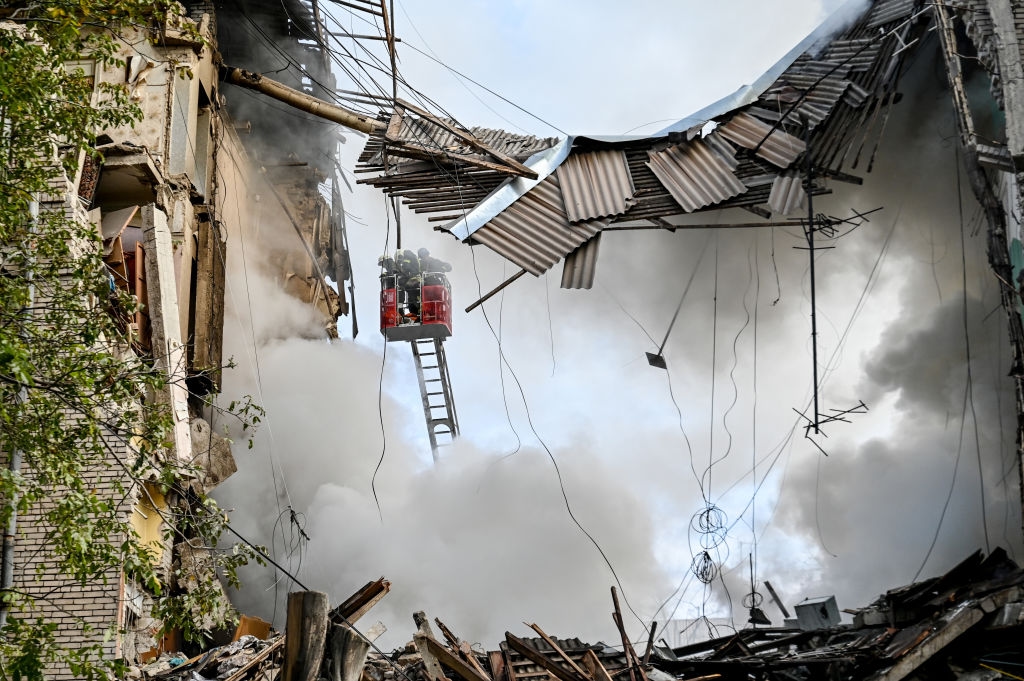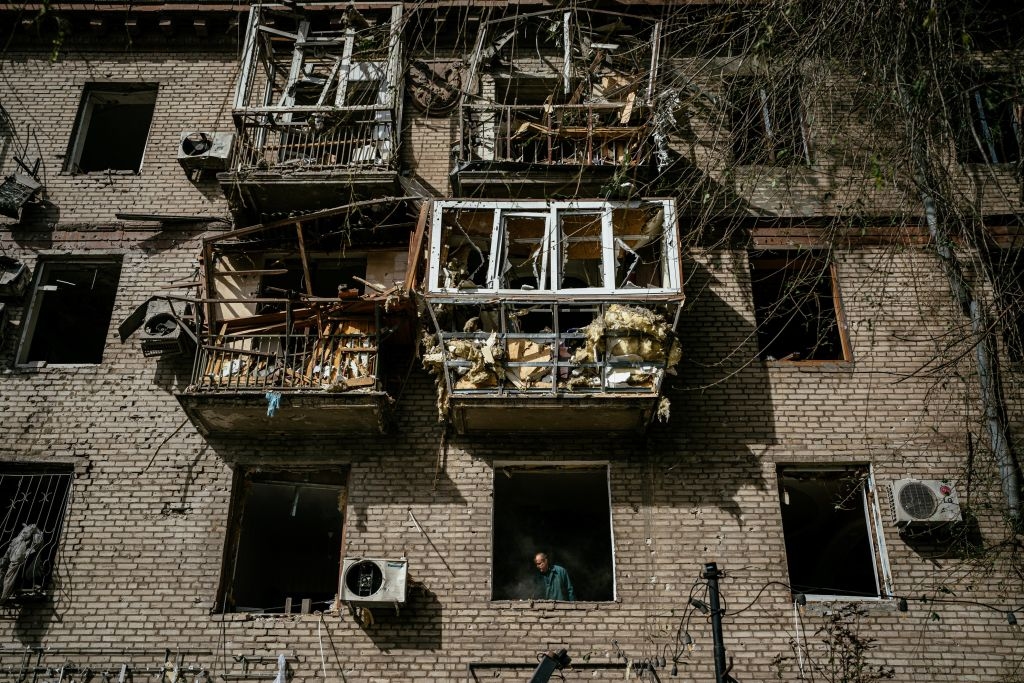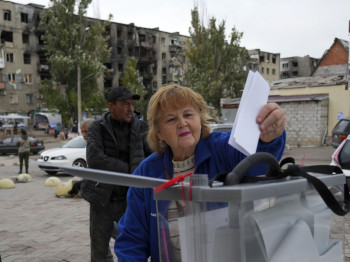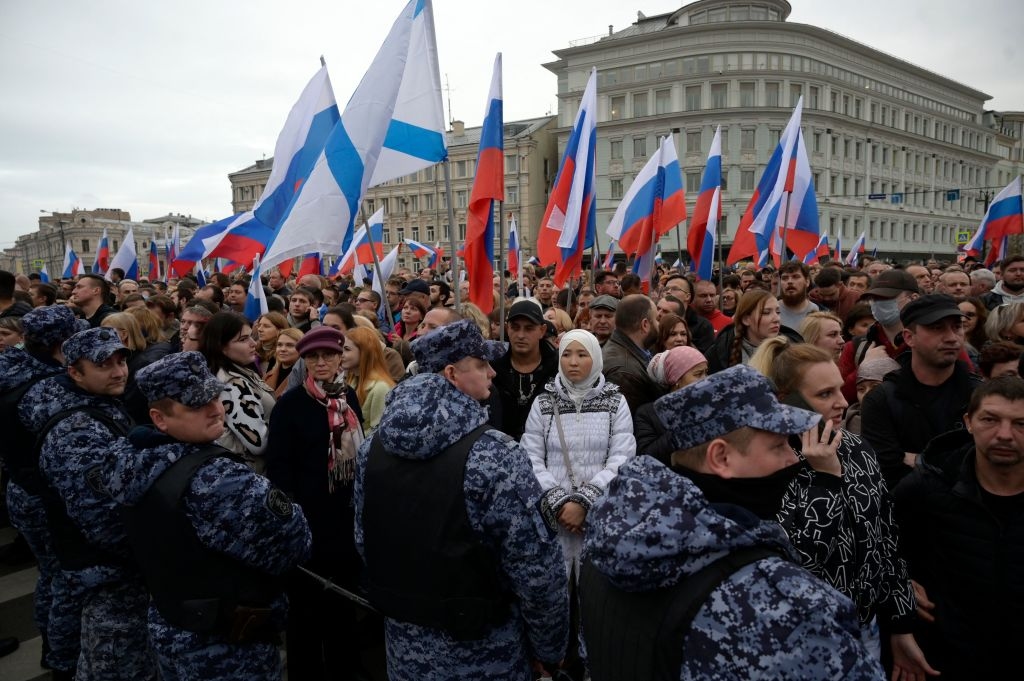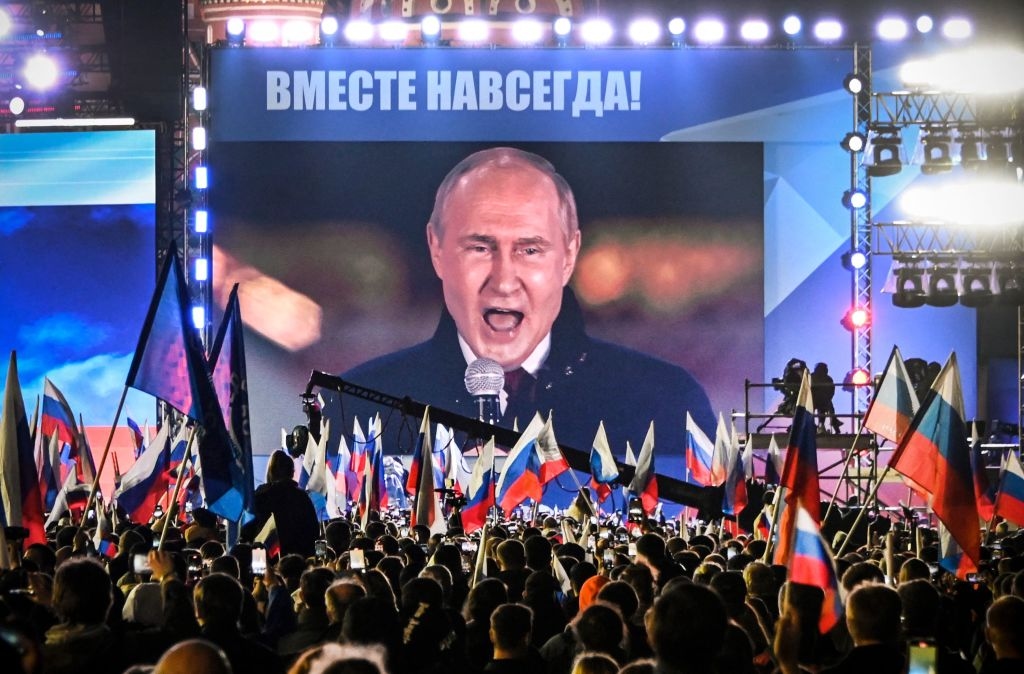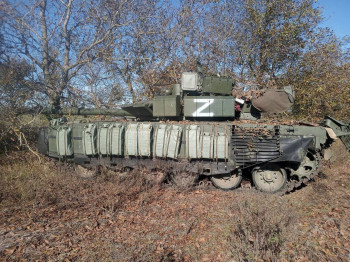Zaporizhzhia responds to Russia’s annexation claims: ‘We have broken up with Russia forever’
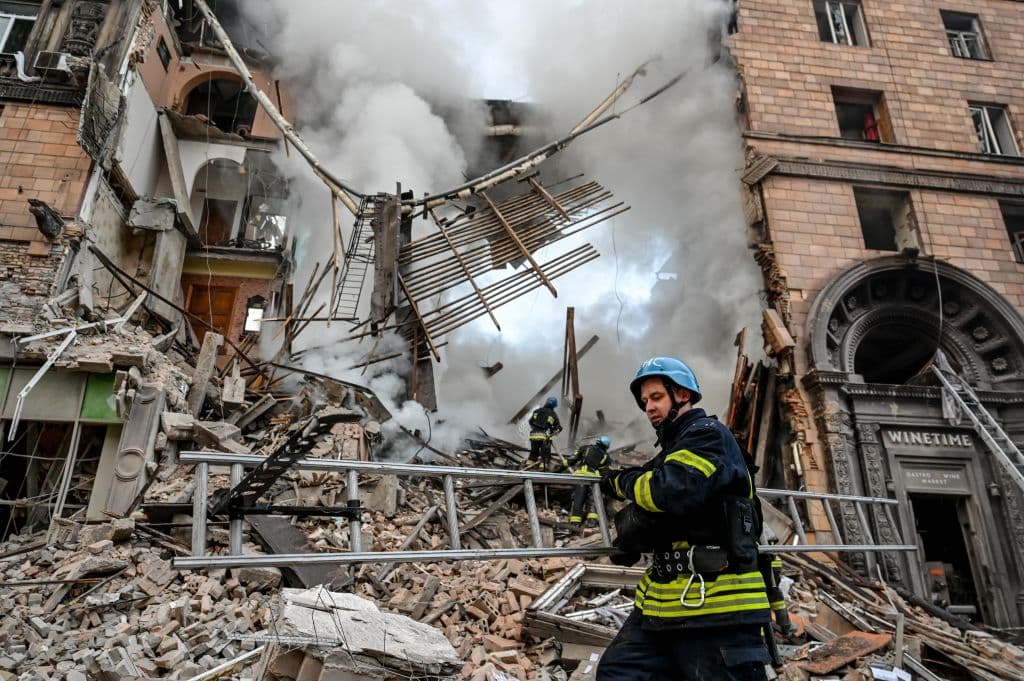
ZAPORIZHZHIA – On Sept. 30, residents of Zaporizhzhia woke up to the horrendous news of a bloody Russian strike on a convoy of civilian cars in their city overnight.
The attack with S-300 missiles killed 31 civilians and wounded 88 more.
Though the deadliest to date, it wasn’t the first strike on Zaporizhzhia since the beginning of the full-scale Russian invasion of Ukraine.
But something about that day was strikingly different. Just a mere hours after the attack, Russia announced the annexation of Zaporizhzhia Oblast, declaring it to be Russian territory along with three other partially occupied Ukrainian regions. The announcement came following sham referendums held between Sept. 23-27.
Around 75% of the southern Ukrainian Zaporizhzhia Oblast is now occupied by Russia, but unlike in Donetsk, Luhansk, and Kherson oblasts, the regional capital of Zaporizhzhia remains under Ukrainian control.
In the week following Russia’s illegal annexation, deadly strikes on Zaporizhzhia, an industrial hub with a prewar population of 710,000, continued.
On Oct. 6, 14 people were killed and 12 more, including two children, were injured as a residential building on the city’s central avenue was hit by a Russian missile.
“It’s an act of pure emotion, of anger,” said local children’s hospital worker Tetiana Huliaieva, 52. “What they fail to understand is that we have already broken up with Russia forever.”
History of resistance
For centuries, the name Zaporizhzhia has been synonymous with resistance in the face of imperial expansion.
The area was the home of the Zaporizhzhian Cossacks, a fierce warrior nation of Ukrainians that inhabited the borderlands of the steppe in the 15-18th centuries. At various times, they fought against Crimean Tatars, Ottoman Turks, Poles, and the Russian Empire, which finally annexed the area in 1775.
Their defiance was immortalized in one of the most famous works of Ukrainian-born painter Illia Repin, which shows Zaprozizhzhian Cossacks laughing as they draft a reply to an ultimatum from the Sultan of the Ottoman Empire ordering them to surrender. Since 2014 when Russia initially invaded Ukraine, the scene has been recreated by the Ukrainian military in the context of its resistance against Russian aggression.
In 2022, history repeated itself: As Russia is attempting to force Zaporizhzhia into surrendering, local residents have a response similar to that of their Cossack ancestors.
Vote at gunpoint
As soon as “voting” in the sham referendums began in the occupied regions of Ukraine on Sept. 23, videos began to emerge of the coercive and fraudulent process, which showed no resemblance to a free and fair vote.
With the front line less than 40 kilometers away, many residents of Zaporizhzhia have relatives and friends in the occupied territories. Phone and internet connection, though sporadic, has shone a light on how exactly the “vote” was conducted.
Huliaieva’s mother, an ardent supporter of Ukraine, lives in occupied Vasylivka, a town 45 kilometers away from Zaporizhzhia on the bank of the Dnipro River. On the second day of the sham referendum, local “election officials” called upon her house in the company of armed Russian soldiers to force her participation. Huliaieva recalled her mother’s account:
“A collaborator came to her door, behind her two men with automatic rifles.
'Auntie Olia,' she said, 'will you vote?'.
'Why are they coming here with rifles asking me to vote?' she said.
'What should they come with, lasers?'
'Sure, even with lasers if they want to, but not with rifles.'
That's how they did it, apartment by apartment. 'And you know if you don't vote,' the woman said, 'you might not get your next pension.'
I had warned her earlier, I told her to quietly and quickly put a cross in the ‘no’ box, but not to cause a scene. I don't know exactly what she did at the end, she didn't say.”
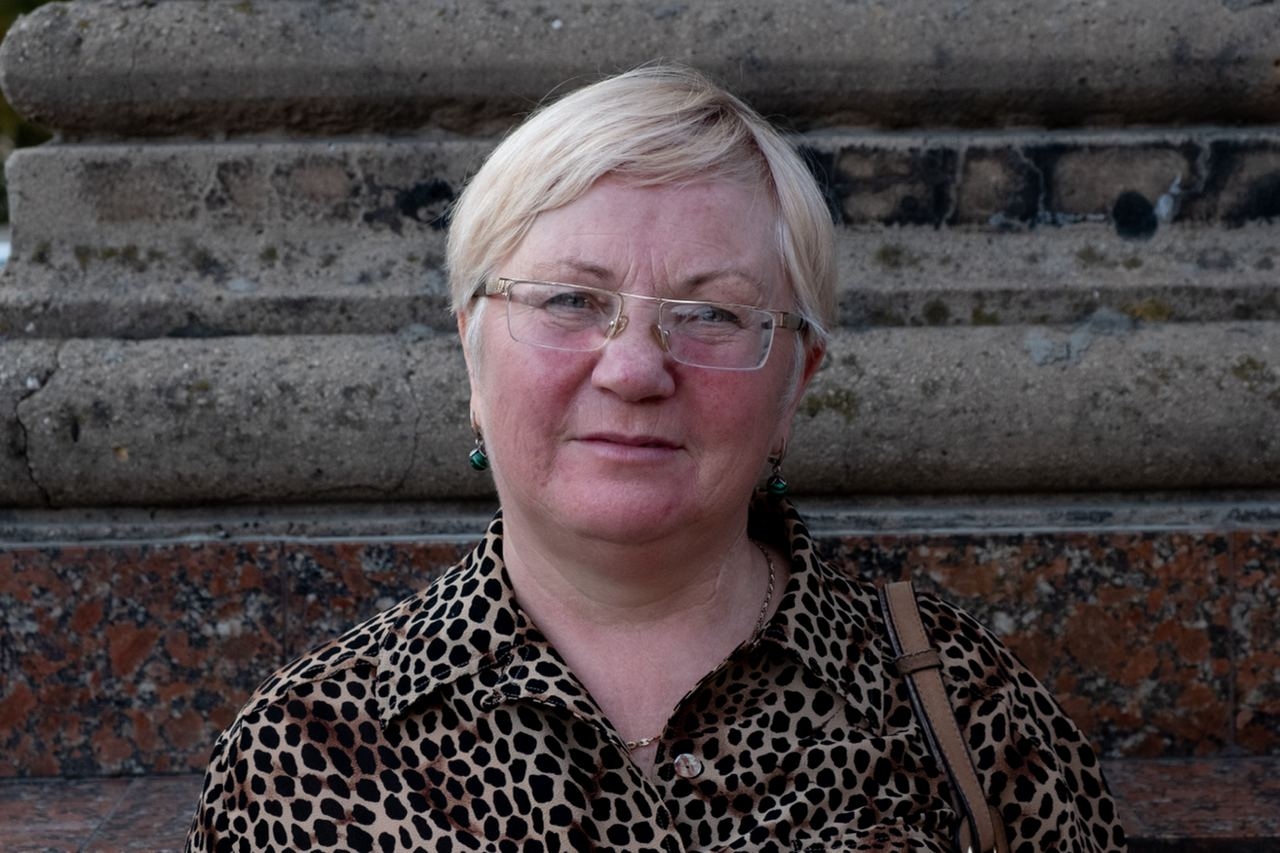
The results of the sham votes were a foregone conclusion. Russia’s Central Election Commission, which claims to have overseen the process, announced a 93.11% vote in favor of joining Russia, with a claimed turnout of 85.4% in Zaporizhzhia Oblast. Similar numbers were announced for other three partially occupied regions.
Huliaeva says that collaborators know “exactly what kind of nonsense” these figures are. “After victory I will go there, I will fetch my mother, and I will look them all in the eye.”
Circus on Red Square
Thousands of Russians were bussed into Moscow’s central Red Square for a concert in celebration of the annexation on Sept. 30. The slogan on the stage proclaimed that Donetsk, Luhansk, Kherson, and Zaporizhzhia oblasts were now Russia.
As Russia celebrated the illegal annexation, the fragility of its grip on the occupied territories continued to be exposed by the Ukrainian Armed Forces. On the next day, Ukraine liberated Lyman, a strategically important city in Donetsk Oblast.
Despite their city becoming a new Russian regional capital in the eyes of the Kremlin, many locals in Zaporizhzhia did not pay the event much attention.
For Valerii, 55, a biker and long-haul truck driver who goes by the name of “Jim Beam,” there was no reason to tune in. “Why should I watch that?” he said. “It's all fake, nobody is interested in those ‘referendums.’”
Maksym Hrytsenko and Aliona Ivanova, both 19-year-old university students, also felt no inclination to follow the spectacle of their region’s annexation closely.
“I caught bits of it, but why spend your time and nerves on that?” Hrytsenko said. “On one hand my reaction was angry and aggressive, on the other it was to be expected, and doesn't change anything.”
“They can sing out whatever they want on their Red Square,” Ivanova said. “Zaporizhzhia is Ukraine and Zaporizhzhia Oblast is Ukraine.”
“It’s just to show the Russian audience that they achieved something with their stupid ‘special operation,’ that so many of them died for a reason.”
A matter of time
Following the annexation of the four Ukrainian regions, Pavel Krasheninnikov, head of Russia’s State Duma Committee on State Building and Legislation, told media that Zaporizhzhia Oblast would join Russia within its administrative borders, despite about 25% of the region living in Ukrainian-controlled territory.
In the early days of Russia’s full-scale invasion of Ukraine, when Russian forces swept quickly through the south of Zaporizhzhia Oblast, the regional capital itself became the next major target.
As with Kharkiv and Mykolaiv, however, Ukrainian forces held the line outside the city, and Russia has failed to make any significant advances in the sector since March.
“We were scared at first,” said Hrytsenko, “but the chances that they could enter Zaporizhzhia now are close to zero.
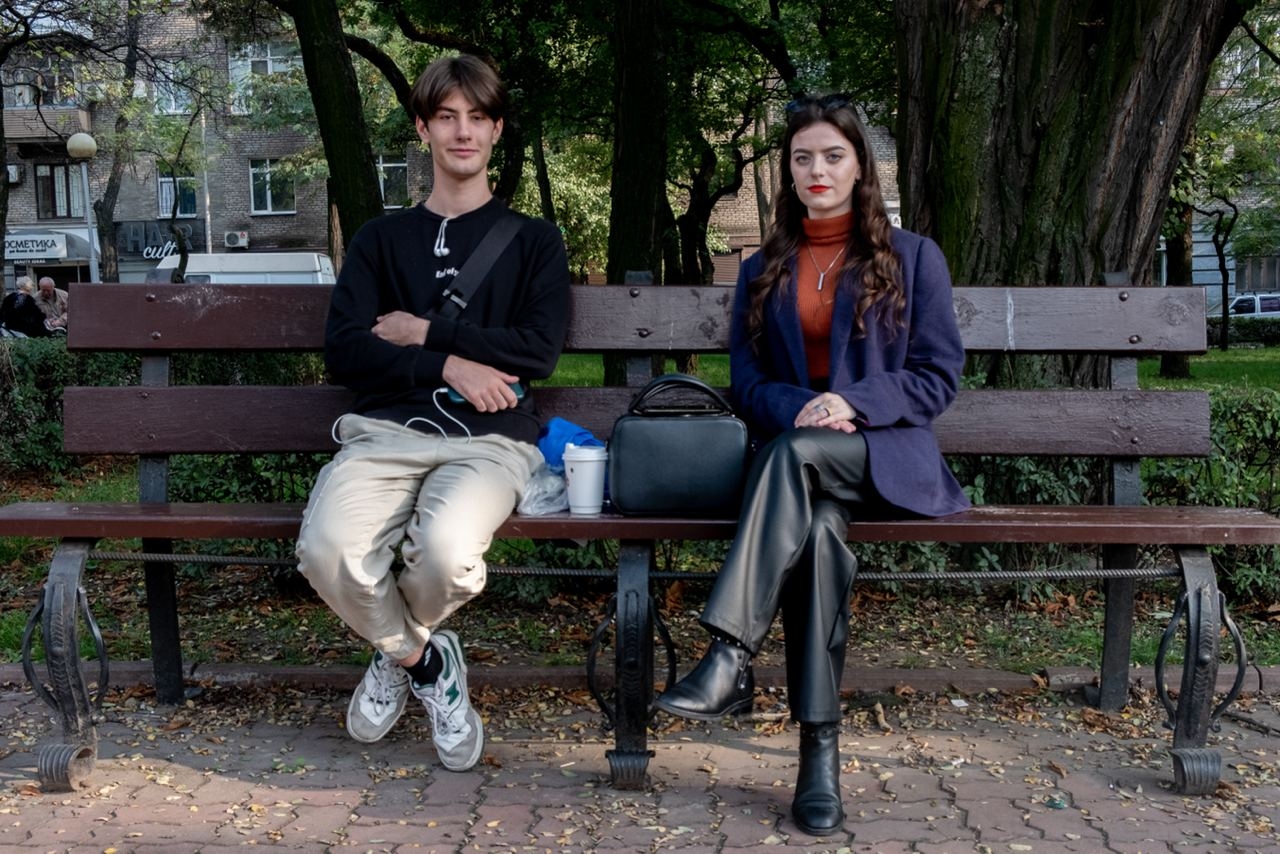
Russia’s rule in the occupied areas of Zaporizhzhia Oblast is far from secure either. The city of Melitopol, occupied since March 1, has become a center of Ukrainian partisan activity. Multiple attacks on Russian military bases and Russian proxies in Melitopol have been reported repeatedly by the city’s exiled mayor Ivan Fedorov.
“My friends are there, doing great work,” Valerii said, “eliminating Russian soldiers, collaborators.”
“I don’t want to live a life of theft and violence, and that is what life under Russia is about,” he said. “The only place for a thief is either in prison or in the ground.”
Valerii’s ex-wife lives in occupied Berdiansk, a port city in Zaporizhzhia Oblast 75 kilometers southwest of occupied Mariupol.
“She told me the Russians don't come into Berdiansk anymore, they stay outside the city limits, afraid of our partisans,” he said. “Hardly anyone feels that Russia will be there for long.”
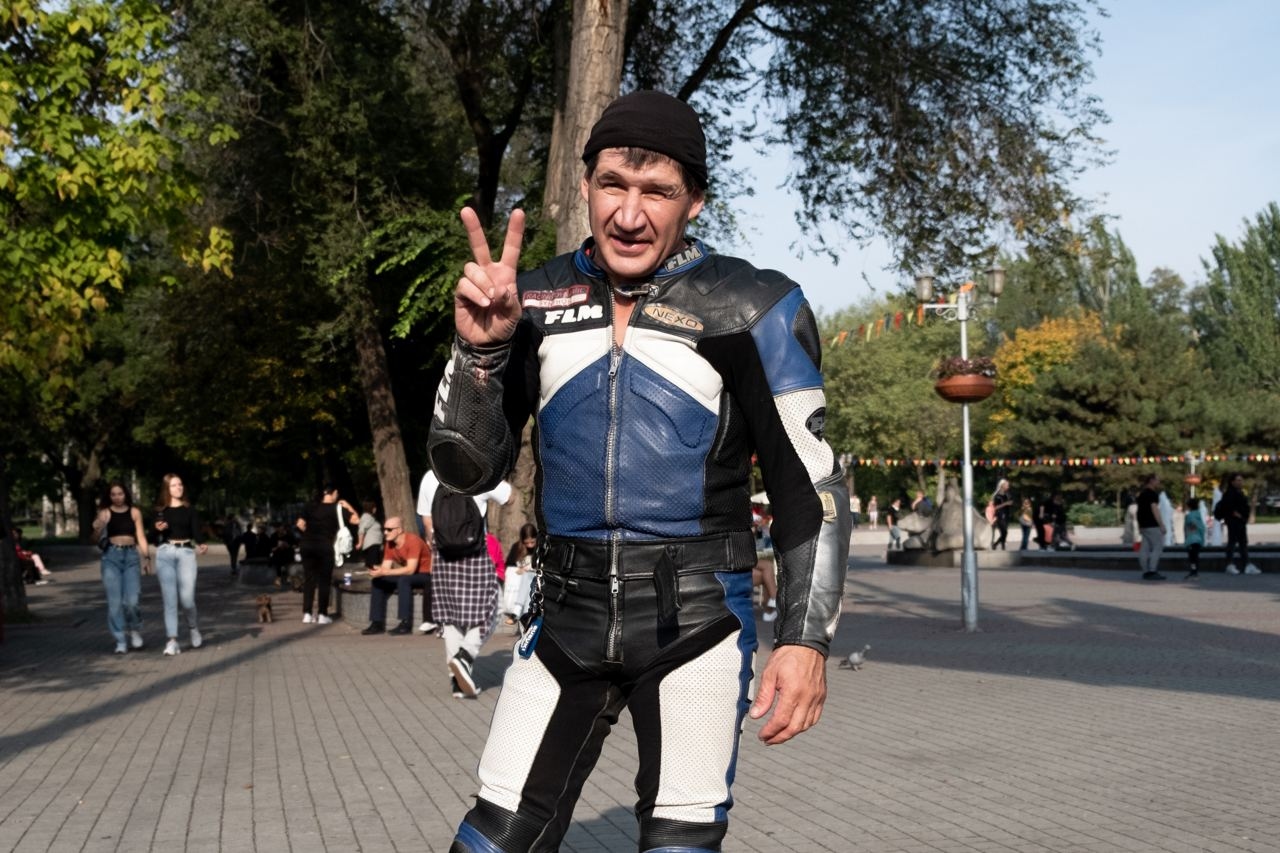
In the days following the illegal annexation, Russia has suffered heavy defeats on the battlefield, losing settlement after settlement in newly-annexed Luhansk, Donetsk, and Kherson oblasts.
On Oct. 3, Kremlin spokesperson Dmitry Peskov said that Russia would hold “consultations with locals” to define the new “borders” of Zaporizhzhia and Kherson oblasts, though no details were given on what that might look like.
Regardless of the status of the region in Russia, there is no doubt in the minds of locals that Russia will be forced from their region for good.
“It's harder (for Ukrainian forces) to push them (Russians) here,” Ivanova said. “It's an open steppe and it's crawling with them.”
“It may take longer, but it’s just a matter of time, and we are waiting patiently.”
Note from the author:
Hi, I'm Francis Farrell, the author of this piece. Residents of Zaporizhzhia woke up on Sept. 30 to a terrorist attack that claimed the lives of 31 civilians, and in the afternoon their home was illegally annexed on paper by Russia. Russia's war against Ukraine is accelerating and escalating. As it unfolds, please consider continuing to support the global voice of Ukraine.

